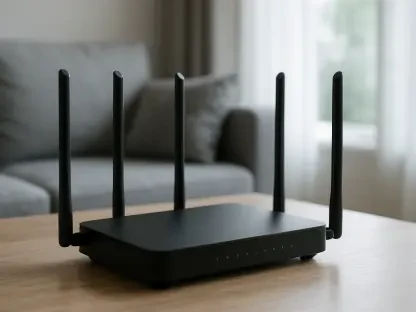Vladislav Zaimov is an experienced telecommunications specialist with a robust background in enterprise telecommunications and the risk management of vulnerable networks. His insights are invaluable for understanding the intricacies of IoT solutions and their applications across various industries.
Can you explain what Pelion Plans are and what specific services they offer?
Pelion Plans represent our newly launched managed IoT product and service proposition. They offer flexible, multi-carrier connectivity solutions through Pelion IoT eSIMs, which are eUICC enabled. This allows for seamless switching between MNO profiles, ensuring minimal downtime and reliable connectivity. The plans are designed to cater to different levels of technological deployment and managed services, helping businesses scale their IoT investments effectively.
How does Pelion Plans differ from your previous IoT product offerings?
Pelion Plans are a refreshed take on our traditional IoT offerings, incorporating the latest advancements in eUICC technology. This enables more flexible and reliable connectivity options through our multi-carrier support. Unlike our previous products, the new plans emphasize future-proofed connectivity, ensuring our clients have robust and adaptable IoT solutions.
What motivated Pelion to refresh its brand identity now?
The decision to refresh our brand identity now is driven by our growth strategy and the evolving needs of the market. As an MVNO, the complexity and scale of connectivity required by businesses are increasing. Our refreshed brand, combined with the launch of Pelion Plans, allows us to position ourselves as leaders in providing reliable and scalable IoT solutions both domestically and internationally.
Can you discuss the growth strategy behind launching Pelion Plans?
Our growth strategy centers on expanding our reach and enhancing our service reliability. The introduction of Pelion Plans is a crucial part of the strategy, tailored to meet the increasing complexity of connectivity needs for global and national deployments. By offering more flexible and secure solutions, we aim to attract a broader range of enterprise clients and solidify our market position.
What industries does Pelion primarily serve with its IoT solutions?
Pelion serves a diverse range of industries, including transport, healthcare, energy and utilities, industrial IoT, asset tracking, and logistics. Our solutions are versatile and designed to meet the specific needs of these sectors, ensuring reliable and scalable connectivity for various applications.
Can you give examples of how Pelion’s services are utilized in different industries like transport, healthcare, and energy?
In the transport industry, our IoT solutions enhance fleet management through real-time tracking and monitoring. In healthcare, they enable remote patient monitoring and asset management, ensuring critical equipment is always available and functioning. In the energy sector, our services facilitate remote monitoring and control of utilities, improving efficiency and reliability across the grid.
How does Pelion’s history with Arm and Softbank influence its current operations and offerings?
Our history with Arm and Softbank has provided us with substantial technological and financial backing, allowing us to innovate and scale our operations effectively. These partnerships have helped us develop cutting-edge IoT solutions and maintain a strong market presence. As an independent company now backed by Scottish Equity Partners, we continue to leverage this legacy to drive our growth and innovation.
What role did Scottish Equity Partners play in Pelion’s development into an independent company?
Scottish Equity Partners played a pivotal role in our transition to an independent company by providing the financial support needed to sustain and expand our operations. Their backing has allowed us to focus on fine-tuning our product offerings, such as Pelion Plans, and pursue aggressive growth strategies both domestically and internationally.
What are the key features of Pelion’s IoT eSIM, and how does it stand out from other IoT SIM solutions on the market?
The Pelion IoT eSIM stands out due to its eUICC capability, which allows it to store multiple MNO profiles and switch between them seamlessly. This ensures that our clients have continuous connectivity with minimal downtime, a critical feature not always guaranteed by other IoT SIM solutions. The flexibility to choose networks based on location, service quality, or cost also provides significant advantages to our users.
Can you explain how the eUICC technology integrated into Pelion’s IoT eSIM benefits your clients?
eUICC technology allows our clients to manage their connectivity more dynamically. They can switch between different MNO profiles based on the best service availability or cost-efficiency without physically changing the SIM card. This leads to better service reliability, lower operational costs, and greater flexibility, especially for global deployments where network performance and requirements can vary widely.
How does Pelion ensure seamless switching between MNO profiles to minimize downtime?
We achieve seamless switching through our advanced eUICC-enabled IoT eSIMs, which are pre-configured to store multiple MNO profiles. When an MNO experiences an outage, the eSIM automatically switches to an alternative profile, maintaining connectivity. We have fine-tuned this technology to ensure the process is smooth and virtually unnoticed by end-users, supporting uninterrupted operations.
What kind of reliability and uptime can clients expect from Pelion’s services compared to the industry average?
Our clients can expect exceptional reliability and uptime from Pelion’s services. On average, we experience less than half an hour of downtime per year, which is significantly lower than the industry average of 87 hours. This high level of reliability translates to substantial cost savings and operational efficiency for our clients.
How has Pelion fine-tuned its offerings over the past two years to enhance reliability and security?
Over the past two years, we have focused on refining our technological infrastructure and service delivery mechanisms. This involved streamlining our processes, implementing advanced security protocols, and leveraging the latest eUICC technology. These efforts have resulted in more robust, secure, and reliable IoT solutions for our clients.
What specific steps is Pelion taking to expand in both domestic and international markets?
We are actively pursuing partnerships and collaborations to expand our market presence. Domestically, we are enhancing our service offerings to attract more small to large enterprises. Internationally, we are leveraging our multi-carrier connectivity and eUICC technology to provide seamless global deployments. This strategic expansion is supported by targeted marketing and robust customer support infrastructure.
How does the Pelion IoT eSIM help organizations scale their IoT investments?
The Pelion IoT eSIM helps organizations scale their IoT investments by providing flexible, future-proof connectivity. Its ability to switch between multiple MNO profiles without physical changes allows for seamless scalability as deployment needs grow. This adaptability is crucial for businesses looking to expand their IoT operations across different regions and networks.
What challenges do businesses face with their current IoT deployments that Pelion Plans aim to solve?
Businesses often face challenges such as connectivity downtime, network management complexities, and high operational costs with their current IoT deployments. Pelion Plans address these issues by offering reliable, flexible, and cost-effective connectivity solutions. Our eUICC-enabled SIMs provide seamless network switching and minimal downtime, thereby reducing operational disruptions and associated costs.
Can you describe the potential cost savings for enterprises using Pelion Plans, particularly in relation to reducing downtime?
Enterprises using Pelion Plans can expect significant cost savings, primarily due to our minimized downtime. With less than half an hour of downtime per year, compared to the industry average of 87 hours, businesses can avoid the substantial financial losses associated with downtime. For example, in the US, the average enterprise could save up to $22.8 million annually by reducing downtime.
What feedback have you received from clients regarding the new Pelion Plans?
The feedback has been overwhelmingly positive. Clients appreciate the flexibility, reliability, and cost-effectiveness of Pelion Plans. They have highlighted the ease of managing network profiles and the reduced operational disruptions as significant benefits. This positive reception underscores the value we provide and our commitment to meeting our clients’ evolving needs.
How does Pelion’s multi-carrier connectivity benefit businesses with global deployments?
Pelion’s multi-carrier connectivity allows businesses with global deployments to maintain consistent and reliable connectivity regardless of their location. Our eUICC-enabled SIMs can switch between different MNO profiles, ensuring optimal network performance and reduced downtime. This seamless global connectivity is crucial for businesses that operate in multiple regions and require unwavering service reliability.
What are Pelion’s long-term goals for growth and further innovation in the IoT space?
Our long-term goals involve continuing to innovate and refine our IoT solutions to meet the evolving needs of our clients. We aim to expand our market presence significantly, both domestically and internationally. By leveraging cutting-edge technology and strategic partnerships, we aspire to be the leading provider of reliable, scalable, and secure IoT connectivity solutions in the industry.









